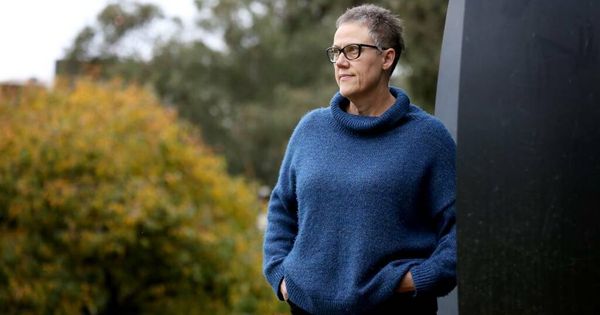Teachers often encourage students to debate a controversial issue. Clayton Christensen favored another strategy.
When Christensen, a legendary Harvard Business School professor, led discussions, he proposed a theory and urged the class to assess whether it applied to the situation. He wanted students to think a certain way, not opine at will.
If students started volleying their opinions back and forth, he'd say, "I don't want to know what you think should happen. I want to know what our framework has to say about the problem and do we all agree on that?"
As a result, his students — and many prominent CEOs — learned to examine his theories and put them to the test.
"You've given us a common vocabulary to discuss counterintuitive ideas," then-Intel CEO Andy Grove told Christensen after he completed a consulting project with the tech company.
Christensen, who died of leukemia at age 67 in January 2020, revolutionized how we think about innovation. A Rhodes scholar who taught at Harvard Business School for more than two decades, he wrote a series of influential books and co-founded an investment firm. He coined the term "disruptive innovation," considered by many to be the key business idea of our century.
Innovative giants such as Steve Jobs, Jeff Bezos and Reed Hastings admired Christensen's work. His theories have spawned entirely new industries and led to billions of dollars in revenue and hundreds of thousands of jobs.
Unlike some professors steeped in academia their whole life, Christensen spent his early years as a management consultant and entrepreneur. He was 40 when he earned his doctorate (Doctor of Business Administration) and then launched his HBS teaching career.
"He'd worked in the real world for decades before he went back to school and got his doctorate," said his son, Matt Christensen, who co-founded Rose Park Advisors with his father in 2007. The Boston-based firm only invests in companies that fit his father's research. Its investments include digital signature software pioneer DocuSign.
Clayton Christensen: Find Wisdom Everywhere
Reflecting on Christensen's success, Matt cites his father's curiosity and humility.
"He was a sponge," Matt said. "He had a feeling that he could learn from anybody. It was rare that he felt he wasted his time meeting with someone."
Moreover, his willingness to share credit encouraged people to propose projects without fear that he'd hog the spotlight.
"He was always very generous with praise," Matt said. "It made people even more comfortable coming to his office at Morgan Hall at HBS with fascinating ideas and not worrying about sharing them. At Davos, he'd present someone's ideas and credit them, including his own students. He didn't need to build himself up."
As a teacher, Christensen won over students with his soft-spoken clarity and captivating use of stories to drill home key points. Unlike bombastic professors who pace the floor and radiate fiery charisma, Christensen spoke in a gentle, sometimes halting tone.
One of his students, Michael Horn, compared his communication style to Abraham Lincoln. The 16th president didn't command a room by talking over everyone in a loud voice.
In his first class with Christensen in 2005, Horn thought, "This is the professor everyone raves about?"
"But as he got going, he'd settle into a rhythm and cadence and people would be mesmerized," Horn recalled. "And like Lincoln, he was a master storyteller."
Horn wound up co-authoring a book with Christensen, "Disrupting Class," about K-12 public education. When Horn got married in 2010, he integrated what he learned from Christensen into his wedding vows.
"I talked about being super-intentional and having a deliberate plan for how we'd be as a couple, rather than just saying yes to instant gratification that takes you away from a deliberate strategy," Horn said. "We all make choices. If you're not deliberate in those choices, it can result in unintentional resource allocation where you prioritize less important things."
Challenge People To Problem Solve Like Christensen
After writing "The Innovator's Dilemma" in 1997, Christensen became a business guru. Corporate chieftains sought his input on how to apply his theories.
Karen Dillon worked closely with Christensen for 10 years, co-authoring three books with him. She marveled at his constant curiosity.
"He was interested in people and ideas," said Dillon, a former editor of the Harvard Business Review. "He'd often say, 'Isn't that interesting?' I'd sit in his office and he'd get calls from famous CEOs and world leaders. He was in the moment in every conversation."
When top leaders sought his advice, he didn't preach or spoon-feed easy solutions. Instead, he engaged in a searching dialogue.
"People would ask him, 'What do you think I should do?' and he'd never give a straight answer," Matt said. "Instead, he'd reply, 'Let me tell you what happened in this other industry.' "
He allowed others to solve the problem on their own. As a result, they took ownership of how to apply his theories to their situation.
Like all great teachers, Christensen loved to spur a free-flowing exchange of ideas. He kept refining his approach so that others would catch on.
Occasionally, Dillon would say to him, "I don't understand that" or "How can you connect that?"
"He never lost patience," she said. "He never got frustrated with me. He'd pull back and say, 'Let me talk about it this way instead.' He made it a safe space for learning."
Always Honor Your Core Values
At the peak of his fame, Christensen continued to challenge his theories and reassess them. He was willing, even happy, to modify his conclusions based on fresh observations.
Dillon recalls a sign in his office, "Anomalies Wanted." It indicated his openness to new insights that didn't align with his stated principles.
"He welcomed people challenging his theories," she said. "When people poked and prodded at his theories, he didn't discourage them. He thought that helped make his theories stronger."
But there was one area that he deemed non-negotiable: his core values.
He was a big believer in balancing work and non-work life. When he joined Boston Consulting Group early in his career, his employer asked him to work weekends.
"He said no," Matt said. "Then they asked him to work late on weeknights. He said no. He always said it's easier to stay true to your values 100% of the time than it is to stay true 98% of the time. The moment you compromise, you're tempted to do it again."
Clayton Christensen's Keys:
- Legendary Harvard Business School professor, entrepreneur, management guru and author who coined the term "disruptive innovation."
- Overcame: A natural tendency of many academics to block out conflicting ideas and fail to reassess their own.
- Lesson: "It's easier to stay true to your values 100% of the time than it is to stay true 98% of the time. The moment you compromise, you're tempted to do it again."










